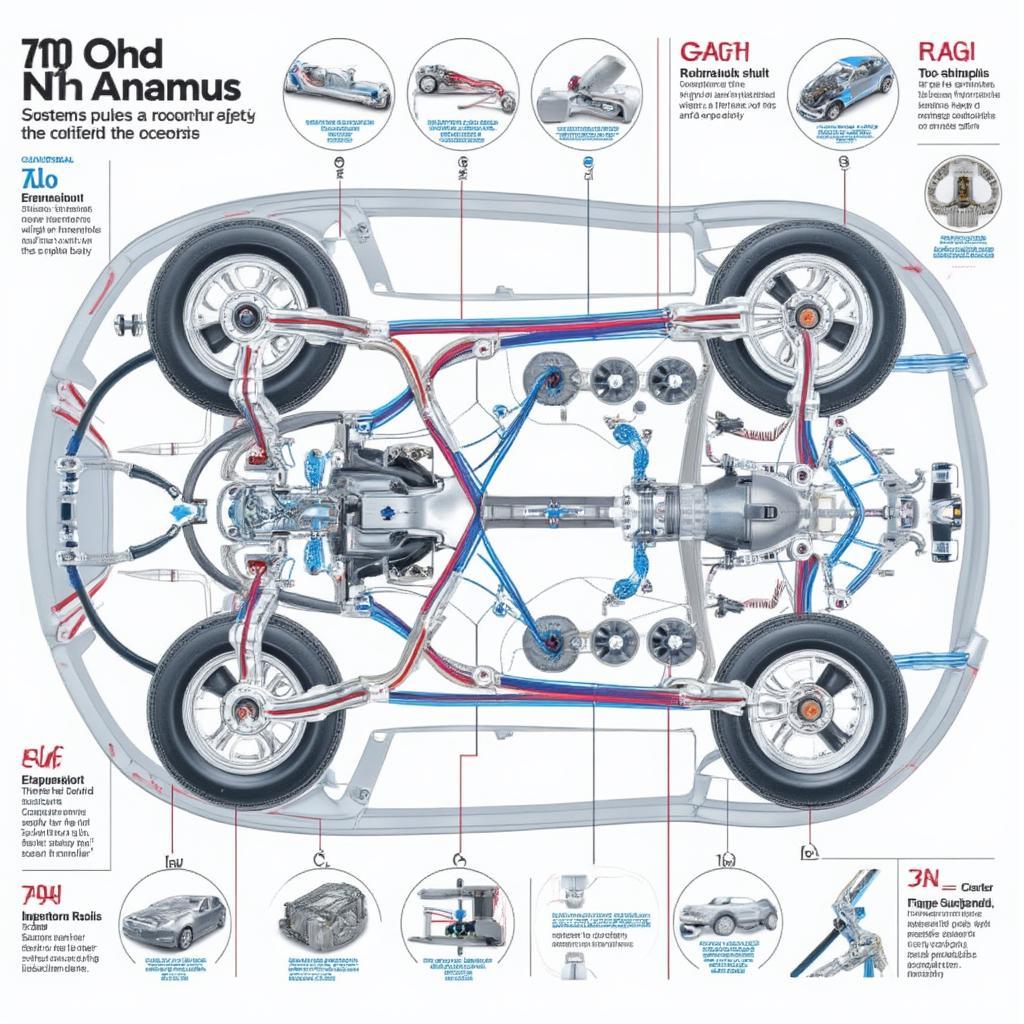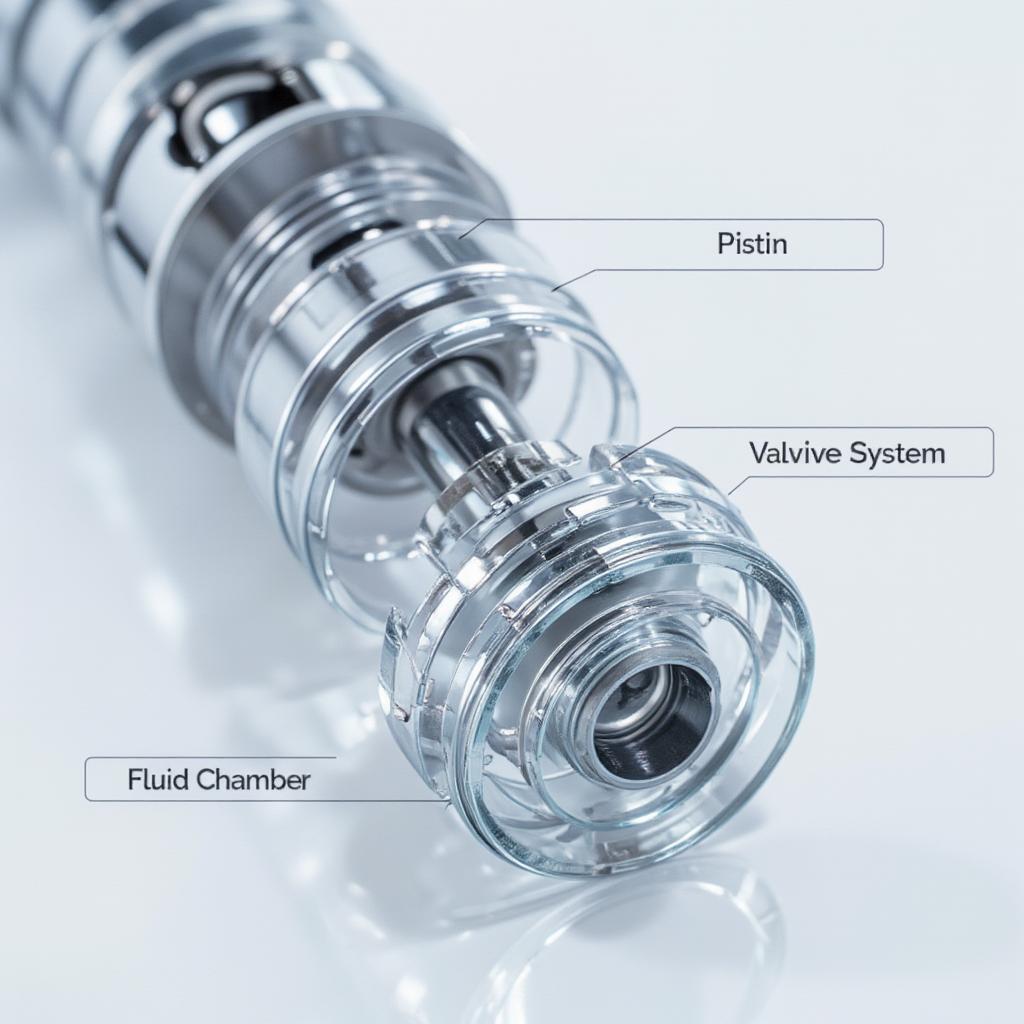Igniting Your Career: A Deep Dive into Automotive Electrical Engineering Courses

Are you fascinated by the intricate dance of circuits and sensors that power modern vehicles? Do you dream of designing the next generation of electric cars or developing cutting-edge automotive technologies? Then, a journey into the world of automotive electrical engineering courses might just be your calling. This field isn’t just about wires and batteries; it’s about shaping the future of transportation. Let’s explore why this sector is booming and how the right education can accelerate your success in the rapidly evolving automotive landscape. This comprehensive guide will navigate you through the essentials, from core concepts to career prospects, ensuring you’re well-equipped to make informed choices about your future.
The automotive industry is undergoing a massive transformation, driven by the rise of electric vehicles, autonomous driving, and connected car technologies. These advancements are heavily reliant on electrical engineering principles, creating an unprecedented demand for skilled professionals. This isn’t just about replacing gasoline engines with electric motors; it’s about integrating complex systems that require deep understanding of circuitry, software, and sensor technology. These systems are becoming increasingly sophisticated, making formal education in automotive electrical engineering courses not just advantageous but essential for a thriving career. Are you ready to dive into the intricacies of this field?
What Do Automotive Electrical Engineering Courses Cover?
Automotive Electrical Engineering Courses are designed to provide students with a strong foundation in electrical engineering principles, while also emphasizing their application in the automotive context. These courses typically cover a wide range of topics, including:
- Circuit Analysis and Design: Understanding the behavior of electrical circuits is fundamental. This involves learning how to analyze and design circuits using various components like resistors, capacitors, and inductors.
- Electronics: You’ll delve into the world of semiconductors, transistors, and integrated circuits. This knowledge is crucial for understanding how electronic devices function in vehicles.
- Digital Logic and Microprocessors: Modern vehicles rely on sophisticated digital systems for everything from engine control to infotainment. Courses will teach you the principles of digital logic and microprocessor programming.
- Automotive Electrical Systems: Here’s where the focus shifts to the specific applications in cars. Topics include power distribution, lighting, ignition systems, and battery management.
- Sensors and Actuators: Learn about the different types of sensors used in vehicles (speed, temperature, pressure, etc.) and the actuators that control various vehicle functions.
- Embedded Systems: You’ll gain skills in designing and programming embedded systems, which are the core of modern vehicle control units.
- Control Systems: This area covers the theory and practice of feedback control systems, which are used to regulate vehicle performance and safety.
- Electric and Hybrid Vehicle Technology: This involves the design and operation of electric powertrains, battery systems, and energy management.
- Automotive Networking: Learn about various communication protocols used in vehicles, such as CAN (Controller Area Network) and Ethernet.
- Safety and Reliability: Understanding automotive safety standards and developing robust and reliable systems are critical components of any well-rounded program.
“The convergence of electrical engineering and automotive technology is reshaping how we design and build vehicles,” says Dr. Emily Carter, a leading expert in automotive engineering. “Students who master these fields will be well positioned to drive innovation in the years to come.”
How Do You Benefit From Formal Training?
Formal training through automotive electrical engineering courses offers numerous advantages. These courses provide:
- Structured Learning: A systematic approach to acquiring knowledge, ensuring you grasp fundamental concepts before moving to more advanced topics.
- Expert Instruction: Learning from experienced faculty who bring practical insights and real-world knowledge to the classroom.
- Hands-on Experience: Opportunities to apply your knowledge through lab work, projects, and simulations.
- Industry-Specific Skills: Developing the specific skills that employers in the automotive sector are looking for.
- Networking Opportunities: Meeting fellow students, industry professionals, and potential employers.
- Career Advancement: Increasing your competitiveness in the job market and setting you up for career growth.
Consider this: a small motor mechanic course provides foundational knowledge, but an electrical engineering course gives you the specific expertise needed for modern automotive technology. Without proper training in the specific details of how these systems are built and maintained, your options might be limited.
Who Should Pursue Automotive Electrical Engineering Courses?
This field is ideal for individuals who have:
- A passion for automobiles and technology.
- A strong aptitude for math and science.
- Problem-solving and analytical skills.
- A curiosity about how electrical and electronic systems work.
- A desire to contribute to the future of transportation.
Whether you are a recent high school graduate, a seasoned professional looking for a career change, or a hobbyist who wants to deepen your understanding of automotive electrical systems, automotive electrical engineering courses can provide a valuable pathway to new opportunities.
Exploring Different Types of Automotive Electrical Engineering Courses
The field offers a variety of learning paths, each with its own specific focus. Here are a few types of programs to consider:
- Undergraduate Degrees: A Bachelor of Science (BSc) in Electrical Engineering with a specialization in automotive engineering is a common starting point for many professionals.
- Master’s Degrees: A Master of Science (MSc) degree allows for further specialization in areas such as electric vehicles, autonomous driving, or advanced control systems.
- Diploma Programs: Diplomas and certificates offer shorter, more focused courses that can quickly equip you with the necessary skills for entry-level positions.
- Online Courses: Online learning provides flexibility for those who need to study at their own pace. Many reputable institutions offer comprehensive online automotive electrical engineering courses.
“Choosing the right type of course depends on your goals and prior experience,” explains Professor Thomas Baker, a seasoned automotive educator. “A degree program is ideal for long term career goals while a certificate may be more beneficial for career specific entry positions.”
For a deeper dive into some of these specializations, consider exploring electric vehicle engineering degree.
Career Opportunities After Completing Automotive Electrical Engineering Courses
Graduates of automotive electrical engineering courses have a diverse range of career opportunities, including:
- Automotive Electrical Engineer: Designing, developing, and testing electrical systems in vehicles.
- Electric Vehicle Engineer: Focusing on the design and implementation of electric powertrains and battery systems.
- Embedded Systems Engineer: Developing software and hardware for the embedded systems used in vehicles.
- Control Systems Engineer: Designing and implementing control algorithms for various vehicle functions.
- Test and Validation Engineer: Testing the performance and reliability of automotive electrical systems.
- Research and Development Engineer: Working on cutting-edge research in automotive technology.
- Automotive Software Engineer: Developing software for vehicle control units and infotainment systems.
- Automotive Cybersecurity Engineer: Protecting vehicle networks from cyber threats.
- Technical Sales Engineer: Promoting and selling automotive electrical components and systems.
The need for skilled professionals is only going to increase as the automotive industry continues to embrace electrification and automation, making automotive electrical engineering courses a worthwhile investment in your future. In addition to these specific careers, the broader background in electrical engineering can open doors into other related sectors. Don’t wait – take action and explore the possibilities that await you.
The Future of Automotive Electrical Engineering
The future of automotive electrical engineering is incredibly bright. Here are some key trends to watch:
- Electrification: The shift towards electric vehicles will drive innovation in battery technology, electric motors, and charging infrastructure.
- Autonomous Driving: Self-driving cars require sophisticated sensor systems, control algorithms, and electrical architectures.
- Connectivity: Connected vehicles rely on sophisticated communication networks and embedded systems.
- Advanced Driver Assistance Systems (ADAS): These systems improve vehicle safety and driver comfort, heavily dependent on electronic sensors and control systems.
- Artificial Intelligence: AI will play an increasingly important role in vehicle control, safety, and driver assistance.

“The rapid pace of technological advancement in the automotive industry means that continuous learning is key,” notes Maria Rodriguez, a long-time automotive industry analyst. “Graduates of automotive electrical engineering courses need to stay ahead of the curve by constantly updating their skills and knowledge.”
If you’re considering a career as an automotive technician, it’s useful to consider a general automotive technician course as it can provide insight into some of these new technologies, although an automotive electrical engineering course is much more detailed in those topics.
FAQ About Automotive Electrical Engineering Courses
Here are some frequently asked questions about automotive electrical engineering courses:
- What are the prerequisites for enrolling in an automotive electrical engineering course?
Typically, you will need a strong background in mathematics and physics. A high school diploma or equivalent is also usually required. - How long does it take to complete an automotive electrical engineering course?
The length varies depending on the type of program. Bachelor’s degrees typically take four years, while master’s degrees take one to two years. Diploma programs can be completed in a shorter time frame. - Are there online options for automotive electrical engineering courses?
Yes, many institutions offer online options for various courses, providing flexibility for working professionals and those who need to study at their own pace. - What skills will I gain from taking these courses?
You’ll gain technical skills in circuit design, electronics, embedded systems, control systems, and automotive networking, as well as soft skills like problem-solving and critical thinking. - Are there any industry certifications available in automotive electrical engineering?
Yes, various certifications validate expertise in automotive engineering, such as those related to specific software or tools in the industry, as well as for systems used in certified mechanic jobs. You might look into certified mechanic course to see which certifications are most relevant for you. - What is the typical salary for an automotive electrical engineer?
Salaries vary based on experience and location, but automotive electrical engineers typically earn competitive wages, with the potential for significant increases over time. - Is it possible to pursue a career in automotive electrical engineering without a formal degree?
While possible, it’s very difficult to excel in this competitive field without formal training. It is recommended to invest in automotive electrical engineering courses to maximize your potential. - What are the best ways to stay updated with advancements in automotive electrical engineering?
Staying updated through technical journals, industry conferences, online resources, and continuous learning through professional development courses is key.
Conclusion
The field of automotive electrical engineering courses offers a dynamic and rewarding career path for those who are passionate about technology and the future of transportation. By developing a strong foundation in electrical engineering principles and their application to the automotive industry, you can position yourself for success in this rapidly growing sector. Whether your ambition is to design the next generation of electric vehicles, develop advanced driver assistance systems, or contribute to autonomous driving technology, investing in your education is the first step towards realizing your vision. Remember that understanding how and why a vehicle functions, learning automotive mechanics with a program such as learning automotive mechanics might just be the stepping stone for you to take. Take the leap and ignite your career in the exciting world of automotive electrical engineering.




